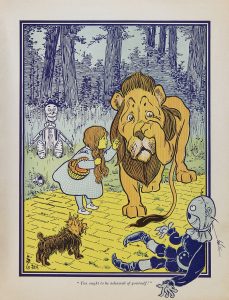In the past few weeks I went to a few workshops / lectures related to open access and / or open science. I attended a validation workshop of the ERC, the Knowledge Exchange Workshop on open access monographs, watched Paywall the movie, and attended the Van Hasselt lecture by Philip Kitcher, i.e., “What do we owe to the future”?
I did not attend the meeting the KNAW organized about Plan S, but I heard a lot about it afterwards. And Plan S in itself has in the same period created much discussion, blogs, events, comments, and even a petition by researchers.
To highlight a few things, let’s start with the lecture by Kitcher, I especially liked the part (more at the end) where Kitcher makes it clear that it is often difficult to get to your ideal situation, but that you can always ask yourself how you can improve things, and in this case to improve it so that the participants in the conversation will be or feel “more inclusive, better informed and better engaged”. These are elements crucial in an organization, in society, and in almost any setting. A basic, but crucial, setting-the-scene.
Another of these basics I encountered In the Knowledge Exchange workshop where Simon Tanner got us back to the principle of open access, i.e., to have others than the obvious scientific colleagues, get access to the content, “Open access is for citizens”. We often ask what the impact of research is, and what value this then represents. Tanner gave us some nice examples where open access mattered. Note that Tanner advised us to be asking impact questions, and that every university can start doing this with their repository content. If you want that with books, by the way, they should be available in full-text and be findable in a search index, which seems obvious, but is often not the case.
And these lectures or presentations are sometimes needed to remember again what it is all about. In the world of publishing it is important to realize that the whole idea of publishing is to spread and distribute knowledge. That the business model, chosen by publishers, to use subscriptions as revenue stream for this, was not the choice of the authors per se. Authors want their publication to be seen by a relevant and widespread audience. Back to basics.
In the open science validation workshop we talked obviously about more aspects than just publishing. Research data management and sharing was discussed. Proper research data management, starting off with a comprehensive data management plan, is key for (doing or living) open science. And that is where we want to raise awareness for, not so much about opening up the data, but managing, and if possible sharing the data. Our TU Delft Library Head of Research Data Services, Alastair Dunning, made this very clear in an in-Library presentation he held recently.
In this workshop, and also in the one about open access monographs, there were hardly any researchers present. At one hand you can expect them to do research and us to be working on facilitating and supporting this. So not that strange overall. However, at the other hand, it is good that more and more researchers are involved in the topics within open science and stand up now and then, e.g. now with the open letter in relation to Plan S. A lot of questions are raised, which indeed need to be answered, and hopefully will be answered soon by the (open) public consultation of the implementation of the plan. As I mentioned in a previous post, finding the right answers is not always easy.
It would be nice if we could start an engaged discussion, where all points-of-view are represented, and participants are well-informed. Where there are some basics we share with each other, and the road to solve our challenges might be bumpy, but lies open to explore. Not a bronze, green, diamond or gold one, but a yellow brick road.

